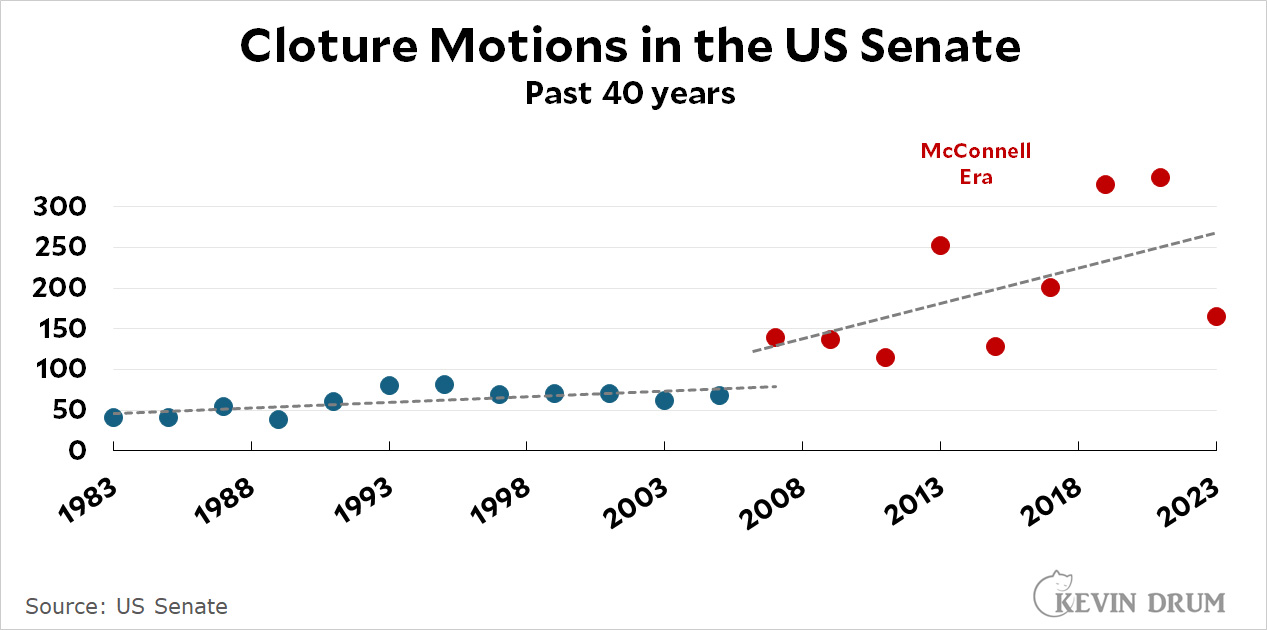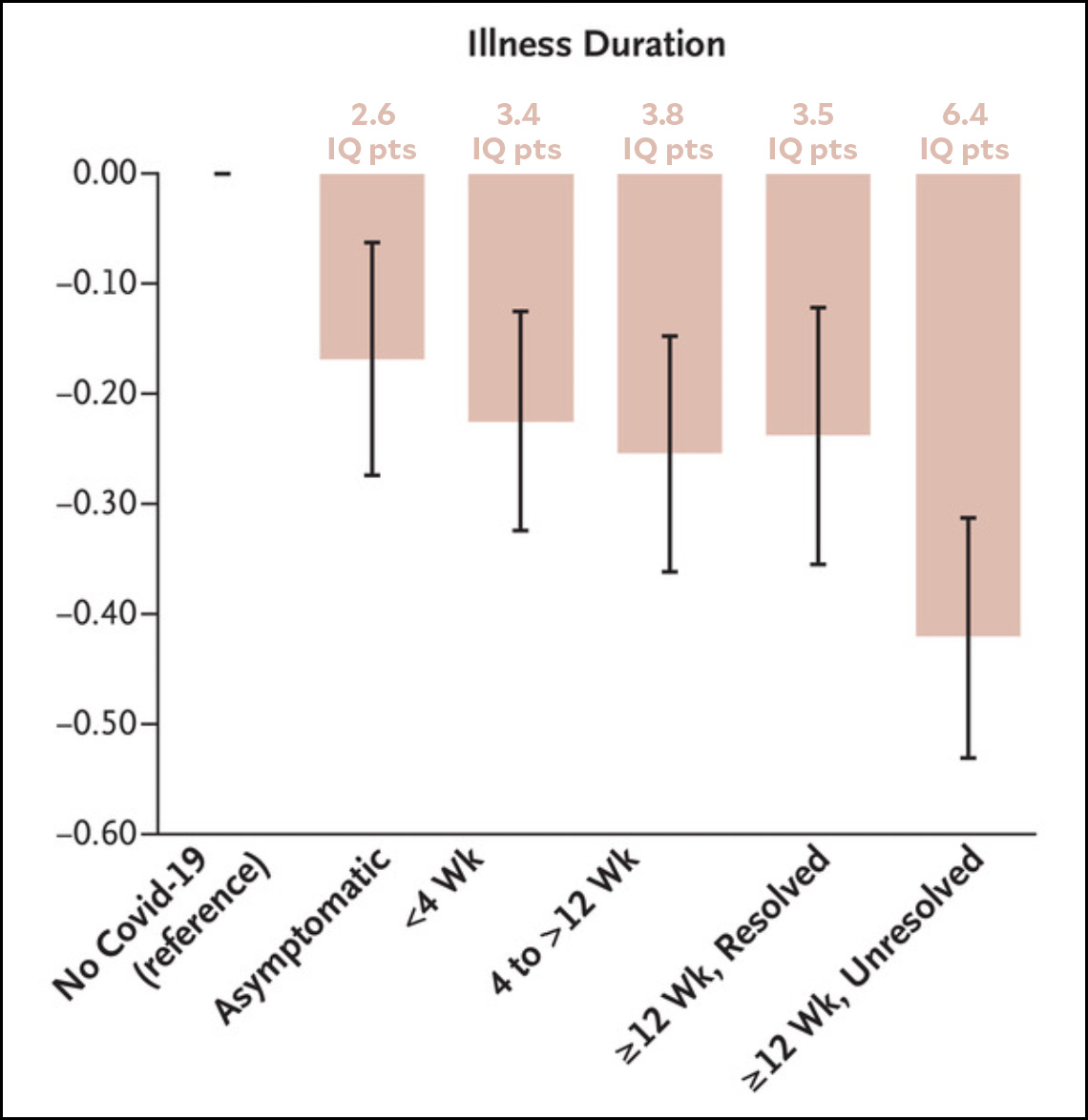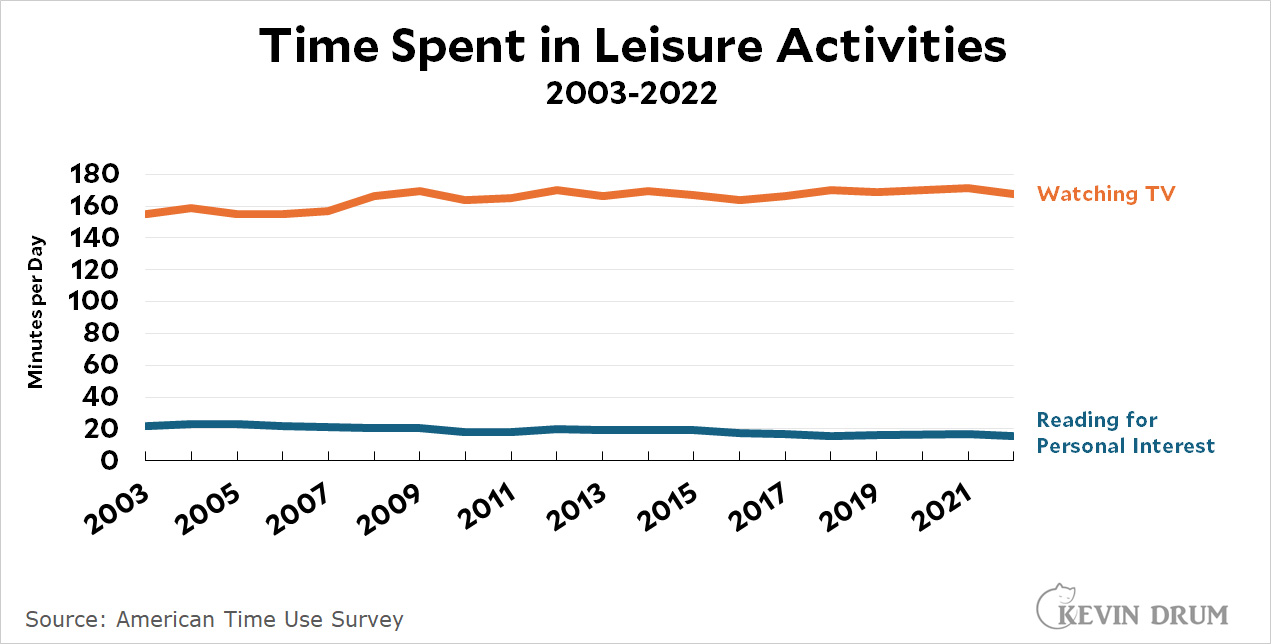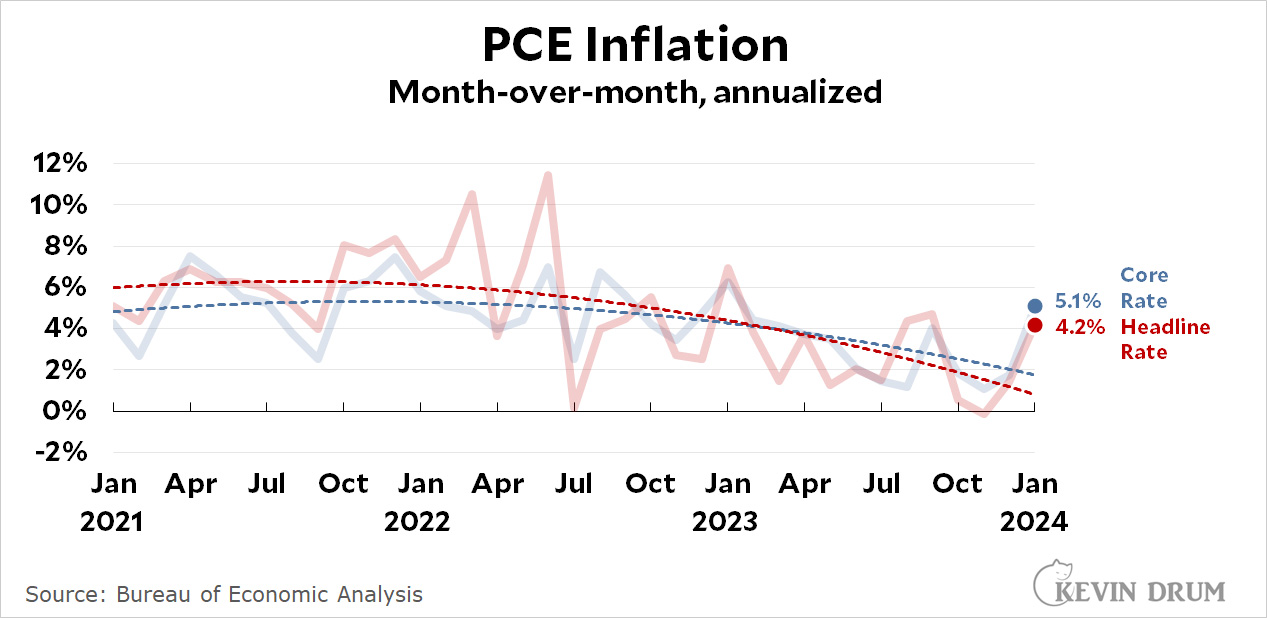Ranked-choice voting has been gaining popularity lately, and that's sparked a MAGA backlash. But why? There's no obvious reason it would benefit either Democrats or Republicans. Nevertheless, conservative groups have launched a large number of very well funded and coordinated attacks on RCV. Alaska, for example, approved RCV in 2020 but opponents have now gathered enough signatures to put a repeal measure on the ballot in November. This was the result of an upset election in 2022 that denied Sarah Palin a seat in Congress.
The most surprising thing about all this is that apparently nobody knows for sure why MAGA opposes ranked-choice voting. Even election expert Rick Hasen is unsure:
“I would guess,” Hasen said, “that the reason for the fear of ranked-choice voting is that it could help elect more Republican moderates rather than more extreme Republicans.”
I guess this could be the reason, though it's hard to believe that RCV strategies aren't available that favor just about any kind of candidate. Another possibility is good old conservative paranoia:
Soros conspiracy theories are common among RCV critics. In fact, the title of Snead’s new book is The Case Against Ranked-Choice Voting: How George Soros and Other Billionaires Use a ‘Dark Money’ Empire to Transform America. His co-author is Trent England, the head of a group called Save Our States that was founded to defend the undemocratic electoral college, but is increasingly targeting ranked-choice voting.
Maybe RCV really does help elect more moderate candidates. For my money, though, the more likely reason for MAGA opposition is simpler: RCV tends to be favored by liberalish good government groups, and by definition this is the Deep State working to entrench its power. If they're for it, MAGA is against it.





